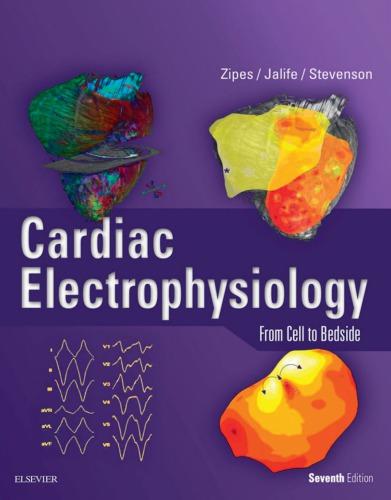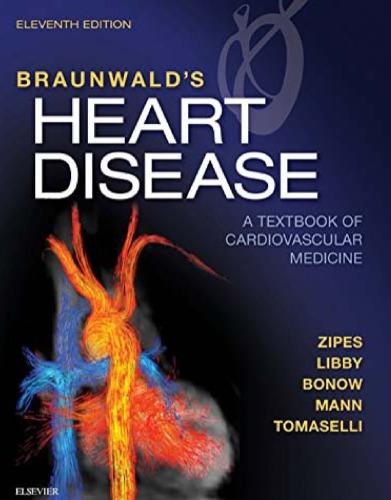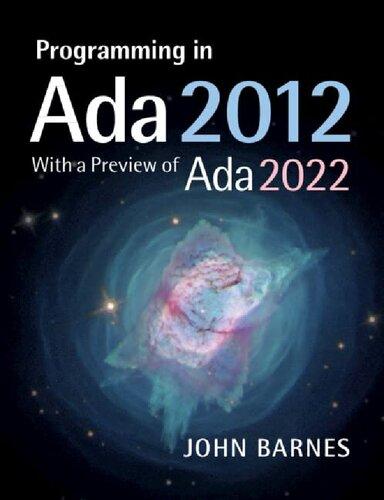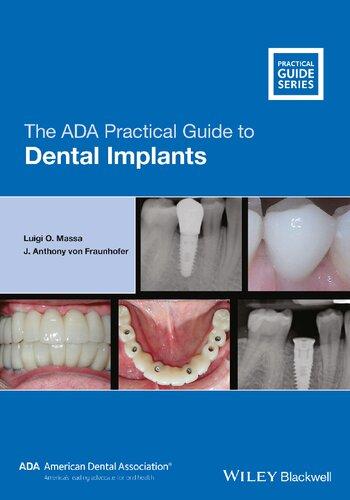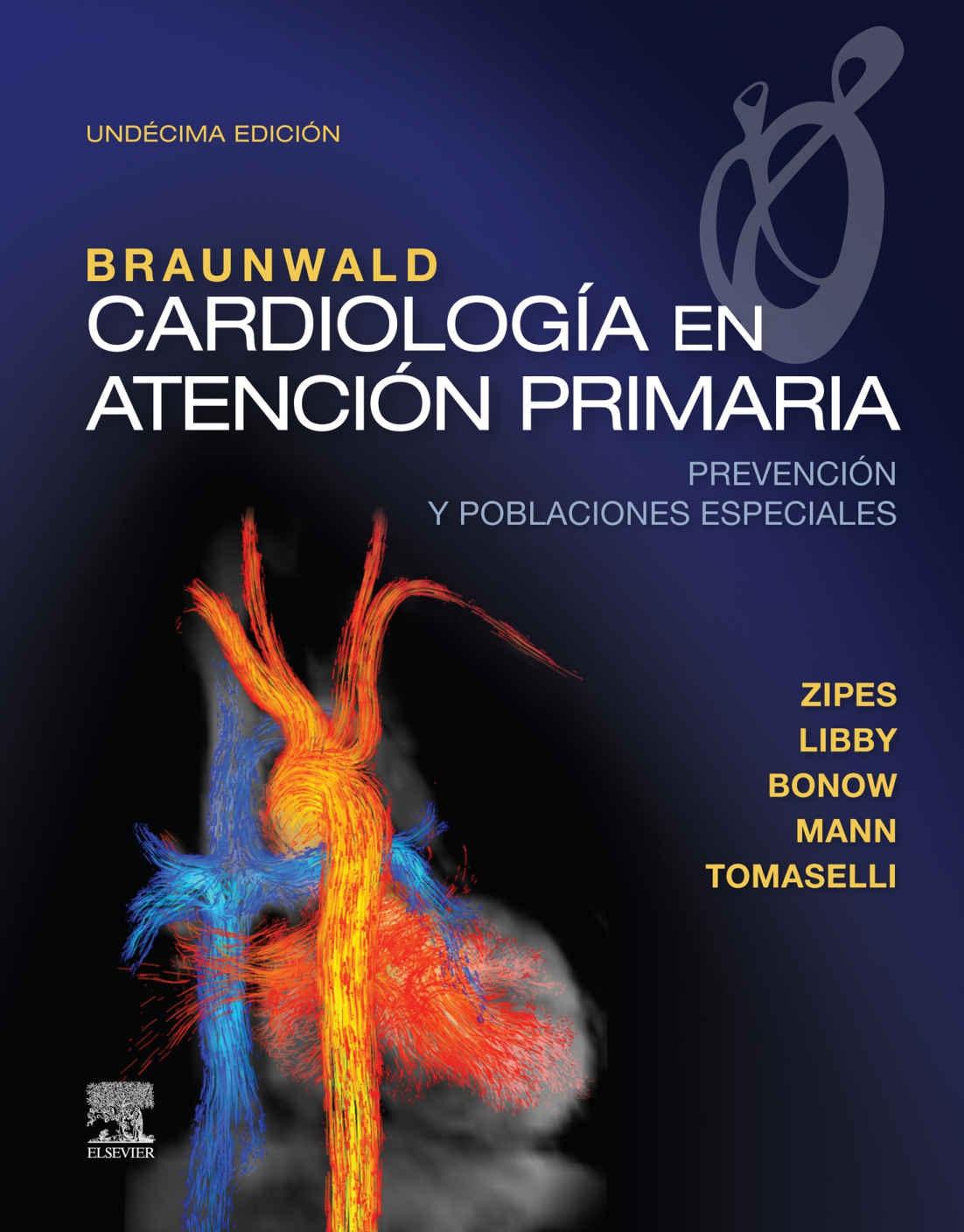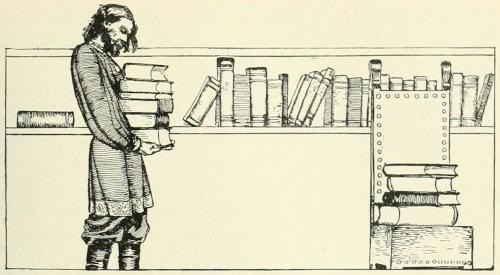Presentación a la undécima edición en lengua española
La undécima edición de Braunwald. Tratado de cardiología. Texto de medicina cardiovascular recoge tanto los fundamentos científicos de la especialidad, los resultados de la investigación clínica y las novedades de la práctica médica basada en la evidencia, como las técnicas y las modalidades diagnósticas más novedosas en el área de la cardiología.
La medicina cardiovascular contemporánea está sometida a avances continuos e incorpora progresivamente parte de estos progresos a otras disciplinas, como es el caso de la atención primaria. En los últimos tiempos, esta especialidad ha asumido nuevos retos asistenciales que requieren una formación más exhaustiva por parte de los especialistas. Este monográfico de Braunwald. Tratado de cardiología. Texto de medicina cardiovascular recoge las últimas actualizaciones en cardiología preventiva y enfermedades cardiovasculares en poblaciones especiales, como ancianos, mujeres, gestantes, etc. Se incluyen igualmente capítulos nuevos que profundizan en la relación existente entre la obesidad y la enfermedad cardiometabólica o en la que presenta la diabetes con el sistema cardiovascular, haciéndose también eco de un tema de gran trascendencia en la actualidad: los efectos de la contaminación ambiental en la salud cardiovascular.
Con el objetivo de ayudar a los especialistas de atención primaria en su práctica clínica diaria, esta nueva edición de Braunwald. Cardiología en atención primaria. Prevención y poblaciones especiales presenta una nueva parte con las recomendaciones procedentes de las guías clínicas más relevantes, todas ellas actualizadas. Entre ellas se encuentran las directrices sobre el control de las dislipidemias, el tratamiento de la hipertensión, el de las cardiopatías en mujeres embarazadas o el manejo de las patologías arteriales periféricas.
El Editor
Another random document with no related content on Scribd:
b R. N. BESTUZHEV-RIUMIN, RussianHistory.
c D. M. WALLACE, Russia.
d R. BELL, AHistoryofRussia.
e S. M. SOLOVIOV, HistoryofRussiafromtheEarliestTimes.
f N. TURGENIEV, LaRussieetlesRusses.
g W. K. KELLY, HistoryofRussia.
h N. I. KOSTOMAROV, RussianHistory.
i A. BRÜCKNER, GeschichteRusslands.
CHAPTER IV. FROM IVAN THE GREAT TO IVAN THE TERRIBLE (1462-1584 A.D.)
b R. N. BESTUZHEV-RIUMIN, RussianHistory.
c N. I. KOSTOMAROV, RussianHistory.
d P. STRAHL and E. HERMANN, GeschichtedesRussischenStaates.
e A. RAMBAUD, HistoiredelaRussie.
f N. KARAMZIN, HistoryoftheRussianEmpire.
g R. BELL, HistoryofRussia.
h S. M. SOLOVIOV, HistoryofRussiafromtheEarliestTimes.
CHAPTER V. THE CENTURY AFTER IVAN THE TERRIBLE (1584-1682 A.D.)
b PROSPER MÉRIMÉE, DemetriustheImpostor.
c N. I. KOSTOMAROV, RussianHistory.
d N. KARAMZIN, HistoryoftheRussianEmpire.
e JEAN HENRI SCHNITZLER, L’Empire des Tsars au point actuél de la science.
f A. RAMBAUD, HistoiredelaRussie.
g R. BELL, HistoryofRussia.
h W. K. KELLY, HistoryofRussia.
i S. M. SOLOVIOV, HistoryofRussiafromtheEarliestTimes.
CHAPTER VI. PETER THE GREAT (1682-1725 A.D.)
b VOLTAIRE, HistoiredeRussie.
c R. BELL, HistoryofRussia.
d N. I. KOSTOMAROV, RussianHistory.
e W. K. KELLY, HistoryofRussia.
f P. STRAHL and E. HERMANN, GeschichtedesRussischenStaates.
g A. RAMBAUD, HistoiredelaRussie.
h P. SHTCHEBALSKI, ReadingsfromRussianHistory.
i S. M. SOLOVIOV, HistoryofRussiafromtheEarliestTimes.
j AUGUSTE DE HAXTHAUSEN, TheRussianEmpire,itsPeople,Institutions andResources.
k CLAUDE CARLOMAN DE RULHIÈRE, RévolutiondePologne.
l C. A. DE LOUVILLE, Mémoires.
m IVAN GOLIKOV, TheActsofPetertheGreat.
CHAPTER VII. CATHERINE I TO PETER III (1725-1796 A.D.)
b R. BELL, HistoryofRussia.
c N. I. KOSTOMAROV, RussianHistory.
d P. SHTCHEBALSKI, ReadingsfromRussianHistory.
e V. A. BILBASSOV, HistoryofCatherineII.
f A. RAMBAUD, HistoriedelaRussie.
g R. NISBET BAIN, TheDaughterofPetertheGreat.
CHAPTER VIII. THE AGE OF CATHERINE II (1769-1796 A.D.)
b P. SHTCHEBALSKI, ReadingsfromRussianHistory.
c V. A. BILBASSOV, HistoryofCatherineII.
d A. RAMBAUD, HistoiredelaRussie.
e R. BELL, HistoryofRussia.
f ANTOINE DE FERRAND, LestroisdémembrementsdelaPologne.
g CATHERINE II, Memoirs.
h A. BRÜCKNER, HistoryofCatherineII.
i THEODOR VON BERNHARDI, Geschichte Russlands und der europäischenPolitikindenJahren1814-1831.
j W. K. KELLY, HistoryofRussia.
k N. K. SHILDER, TheEmperorAlexanderI.
CHAPTER IX. RUSSIA IN THE NAPOLEONIC EPOCH (1796-1815
A.D.)
b F. C. SCHLOSSER, Geschichtedes18.und19.Jahrhunderts.
c A. RAMBAUD, HistoiredelaRussie.
d R. BELL, HistoryofRussia.
e R. GOSSIP, HistoryofRussia.
f A. ALISON, HistoryofEurope.
g N. K. SHILDER, TheEmperorAlexanderI.
h P. DE SÉGUR, HistoryoftheExpeditiontoRussia.
i A. MIKHAILOVSKI-DANILEVSKI, VieduFeld-MaréchalKoutouzoff.
j T. VON BERNHARDI, Geschichte Russlands und der europäischen PolitikindenJahren1814-1831.
k W. K. KELLY, HistoryofRussia.
l F. H. SKRINE, TheExpansionofRussia,1815-1900.
CHAPTER X. ALEXANDER I, MYSTIC AND HUMANITARIAN (1801-1825 A.D.)
b N. K. SHILDER, TheEmperorAlexanderI.
d N. TURGENIEV, LaRussieetlesRusses.
e W. K. KELLY, HistoryofRussia.
f A. RAMBAUD, HistoiredelaRussie.
g A. ALISON, HistoryofEurope.
h F. H. SKRINE, TheExpansionofRussia1815-1900.
i STORCK, RusslandunterAlexanderdemErsten.
CHAPTER XI. THE REIGN OF NICHOLAS I (1825-1854 A.D.)
b N. K. SHILDER, TheReignoftheEmperorNicholasI.
c J. H. SCHNITZLER, LaRussie,AncienneetModerne.
d W. K. KELLY, HistoryofRussia.
e A. P. DE CUSTINE, LaRussieen1839.
f A. RAMBAUD, HistoiredelaRussie.
g T. DELORD, HistoiredusecondEmpire.
h P. DE LA GORCE, HistoiredusecondEmpire.
i H. MARTIN, HistoiredelaFrancedepuis1789jusqu’ànosjours.
j A. A. SHUMAKR, TheCzarLiberator.
k F. H. SKRINE, TheExpansionofRussia1815-1900.
CHAPTER XII. ALEXANDER II, THE CZAR LIBERATOR (1855-1881 A.D.)
b A. RAMBAUD, HistoiredelaRussie.
c D. M. WALLACE, Russia.
d A. A. SHUMAKR, TheCzarLiberator.
e P. DE LA GORCE, HistoiredusecondEmpire.
f ALEXANDER II, ManifestoorProclamation.
g F. H. SKRINE, TheExpansionofRussia1815-1900.
h JULIUS ECKHARDT, ModernRussia.
CHAPTER XIII. REACTION, EXPANSION, AND THE WAR WITH JAPAN (18811904 A.D.)
b D. M. WALLACE, article on Russian history in the NewVolumesof the EncyclopædiaBritannica.
c ALBERT J. BEVERIDGE, TheRussianAdvance.
d HENRY NORMAN, AlltheRussias.
e A. N. KUROPATKIN, quoted in F. H. Skrine and E. D. Ross’s The HeartofAsia.
APPENDIX. DOCUMENTS RELATING TO RUSSIAN HISTORY
These documents, given in a somewhat condensed form, are from the following sources: The Treaty of Paris, from H. TYRRELL’S History of the War with Russia; The Treaty of Berlin and The Hague Peace Conference, from SIR EDWARD HERTSLET’S StatePapers, Vol. CX.
A GENERAL BIBLIOGRAPHY OF RUSSIAN HISTORY
BASED ON THE WORKS QUOTED, CITED, OR CONSULTED IN THE PREPARATION OF THE PRESENT HISTORY; WITH CRITICAL AND BIOGRAPHICAL NOTES
Anon., La guerre d’Orient en 1877-1878, par un tacticien, Paris, 1880; Tainy nashei gosudarstvennoi politiki v Polshye. Sbornik sekretnykh dokumentov (The secrets of our governmental policy in Poland. A collection of secret documents), London, 1899; Secret Memoirs of the Court of St. Petersburg, particularly towards the end of the reign of Catherine II and the commencement of that of Paul I (translated from the French), London, 1895; The Persecution of the Jews in Russia, published by the Russo-Jewish Committee, London, 1890; Russia, Its Industries and Trade (Official report prepared for the Glasgow Exhibition), Glasgow, 1901; Erinnerungen eines Dorfgeistlichen. Ein Beitrag zur Geschichte der Leibeigenschaft und
ihrer Aufhebung. Aus dem russischen übertragen von M. Oettingen, Stuttgart, 1894 (Bibliothek russischer Denkwürdigkeiten. Edited by Th. Schiemann, vol. 5); An early news-sheet. The Russian Invasion of Poland in 1563. An exact facsimile of a contemporary account in Latin, published at Douay. Together with an introduction and historical notes, and a full translation into English, London, 1874; The French bulletins relating to the war in Russia, London, 1813; Russia’s March Towards India, by an Indian officer, London, 1893, 2 vols.; Russia Before and After the War. By the author of “Society in St. Petersburg,” etc. Translated from the German, with later additions by the author, by E. F. Taylor, London and New York, 1880; Von Nicolaus I zu Alexander III: St. Petersburger Beiträge zur neuesten russischen Geschichte, Leipsic, 1881; Russisch-Baltische Blaetter, Beiträge zur Kenntniss Russlands und seiner Grenzmarken, 4 vol., Leipzig, 1886-1888; Russland vor und nach dem Kriege; auch “Aus der petersburger Gesellschaft,” Leipsic, 1879; Russland am Scheidewege: Beiträge zur Kenntniss des Slawophilenthums, Berlin, 1888; Lose Blätter aus dem Geheim-Archive der russischen Regierung; Ein aktenmässiger Beitrag zur neuesten Geschichte der russischen Verwaltung und Beamten-Korruption, Leipsic, 1882.— Abaza, V. A. Istorya Rossii (History of Russia), St. Petersburg, 1893. Abbott, J., Narrative of a Journey from Herat to Khiva, Moscow and St. Petersburg, during the late Russian invasion of Khiva, London, 1856, 2 vols.—Adam, Mme., Le général Skobélef, Paris, 1886.—Adelung, F. von, Kritisch-literarische Übersicht der Reisenden in Russland bis 1700, St. Petersburg, 1846, 2 vols. Alexander II, Manifest (The proclamation of emancipation) printed by the Senate, St. Petersburg, 1861.—Alison, A., History of Europe, London and New York, 1849-1850, 14 vols. Arnaud, C. A. de, The New Era in Russia, Washington, 1890. Arnheim, F., Der ausserordentliche Finländische Landtag, Leipsic, 1900.—Avril, A. d’, Négociations relatives au traité de Berlin et aux arrangements qui ont suivi, Paris, 1886.
Bain, R. N., Charles XII and the Collapse of the Swedish empire (Heroes of the Nations series) New York, 1895; The Pupils of Peter the Great. A History of the Russian Court and Empire from 1697 to 1740, Westminster, 1897; The Daughter of Peter the Great. A History of Russian Diplomacy and of the Russian Court under the Empress Elizabeth Petrovna (1741-1762), Westminster, 1899.—Bakunin, A., M. Herzen, and others, Sozial-politischer Briefwechsel. Mit einer biographischen Einleitung von M. Dragomanov. Autorisirte Übersetzung aus dem russischen von B. Minzer, Stuttgart, 1895. (Bibliothek russischer Denkwürdigkeiten, vol. 6).—BantyshKamenski, D. N. Istorya maloi Rossii (History of Little Russia) Moscow, 1842.
Bantysh-Kamenski was born in Moscow in 1788. Between 1825 and 1828 he was governor of Tobolsk, and from 1836 to 1838, governor of Vilna. After that he was engaged in the ministry of the interior. He died at St. Petersburg in 1850. Besides his “History of Little Russia,” which is to this day the only complete history in this department, he also wrote a biographical dictionary and the lives of a number of Russian statesmen and commanders.
Bantysh-Kamenski, N., Diplomatitcheskoe sobranie dyel mezhdu
Rossiiskim i Kitaiskim gosudarstvom s 1619 po 1792 god (a collection of diplomatic papers between the Russian and Chinese empires from 1619 to 1792) Kazan, 1882; Obzor vnyeshnikh snoshenyi Rossii po 1800 g (a review of the foreign relations of Russia up to the year 1800, Courland, Livonia, Esthonia, Poland, and Portugal), Moscow, 1897. Bell, R., Russia (Cabinet Cyclopædia series), London, 1836, 3 vol.—Bernhardi, T. von, Geschichte Russlands und der europäischen Politik in den Jahren 1814-1831, Leipsic, 1868-1878, 3 vols. Bestuzhev-Riumin, K. N., Russkaya istorya (Russian history) St. Petersburg, 1872, 2 vol.
KonstantinNikelaievitchBestuzhev-Riuminwas born in 1829. From 1865 to 1882 he was a professor at the university of St. Petersburg. Besides the History, he has been the author of a number of monographs. His method is thorough, painstaking, and minute. He
insists on a many-sided study of the national life, and of the exclusion of all philosophical or general theories, and devotes much more space to internal than to external history, paying special attention to forms of family life, political organisation, law, religion, and literature. The introductory chapters give a valuable account of the source and authorities of Russian history. At his death, in 1897, he left his History a torso. It was translated into German by Dr. Schiemann (Mitau, 1873-1875).
Beveridge, A. J., The Russian Advance, New York, 1903. Bigelow, P., The German Emperor and his Eastern Neighbors, New York, 1892.—Bilbassov, V. A., Istorya Ekateriny II (History of Catherine II), London, 1895, 2 vols.—Bilbassov, B., Katherina II, Kaiserin von Russland, im Urtheile der Weltlitteratur. Übersetzt aus dem russischen mit einem Vorwort von T. Schiemann, Berlin, 1897, 2 vols.; Geschichte Katharina II. Übersetzt aus dem russischen von M. von Petzold, Berlin, 1893, 2 vols. Bodenstedt, F. von, Die Völker des Kaukasus und ihre Freiheitskämpfe gegen die Russen, Berlin, 1855, 2 vols.—Bogdanovitch, M. I., Istorya tsarstvovanya imperatora Alexandra I i Rossii v yevo vremya (History of the reign of Alexander I and of Russia during his time) St. Petersburg, 18691871, 6 vols. Bond, E. A., Russia at the Close of the 16th Century; comprising the treatise “Of the Russ Commonwealth,” by G. Fletcher, and the travels of Sir J. Horsey (Hakluyt Society Publications, vol. 20), London, 1856. Bookwalter, J. W., Siberia and Central Asia, New York, 1899.—Boulger, D. C., England and Russia in Central Asia, London, 1873, 5 vols.—Brodhead, J. M. N., Slav and Moslem: historical sketches, Charleston, S. C., 1894. Brooks, C. W. S., Russians of the South, London, 1854. Browning, O., Charles XII of Sweden, London, 1899.—Brueckner, A. Finanzgeschichtliche Studien: Kupfergeldkrisen, St. Petersburg, 1867; Kulturhistorische Studien: die Russen im Ausland: die Ausländer in Russland im 17. Jahrhundert, Riga, 1878; Ivan Possoschkow: Ideen und Zustände in Russland zur Zeit Peters des Grossen, Leipsic, 1878; Peter der Grosse, in Oncken’s Allgemeine Geschichte in Einzeldarstellungen, Berlin, 1879; Der Zarewitsch Alexei, Heidelberg, 1880; Katharina II,
in Oncken’s Weltgeschichte in Einzeldarstelungen, Berlin, 1883; Istorya Yekateriny II (History of Catherine II), St. Petersburg, 1885, 3 vols.; Bilder aus Russlands Vergangenheit, Leipsic, 1887; Beiträge zur Kulturgeschichte Russlands im 17. Jahrhundert, Leipsic, 1887; Die Europäisierung Russlands, Gotha, 1888; Geschichte Russlands: Überblick der Entwicklung bis zum Tode Peters des Grossen, in Geschichte der europäischen Staaten, Gotha, 1896.
AlexanderBruecknerwas born August 5, 1834, at St. Petersburg. After engaging for six years in business, he turned his attention to the study of history, which he pursued at Heidelberg, Jena, and Berlin. After returning to St. Petersburg he became professor of history at the Imperial School of law, in 1867 professor at the university of Odessa, and in 1872 at Dorpat. Owing to his German origin, he was removed in 1891 from Dorpat and transferred to the university of Kazan, but at his request he was permitted to settle at Jena. Brueckner is, like Schiemann and Eckhardt, a German-Russian, and as such has a special qualification for the presentation of Russian history to a West-European audience. He has written numerous works both in Russian and in German, and takes rank with the foremost historians of Russia.
Brueggen, E. von der, Polens Auflösung, Leipsic, 1878; Wie Russland europäisch wurde, Leipsic, 1885. Bunge, F. G. von, Geschichtliche Entwicklung der Standesverhältnisse in Livonia, Esthonia, und Kurland bis 1561, Dorpat, 1838; der Orden der Schwertbrüder, Leipsic, 1875. Burtsev, V., and S. M. Kravtchinski, Za sto lyet (1800-1896). Sbornik po istorii polititcheskikh i obshtchestvennikh dvizhenyi v Rossii (One hundred years. Documents Relating to the History of Political and Social Movements in Russia), London, 1897. Buturlin, Knyaz D. P., Histoire militaire de la campagne de Russia en 1812, Paris, 1824, 2 vols.
Cary, C., The Trans-Siberian Route, New York, 1902. Catherine II, empress of Russia, Memoirs of the Empress Catherine II, written
by herself, with a preface by A. Herzen, translated from the French, New York, 1859.—Celestin, Fr. J., Russland seit Aufhebung der Leibeigenschaft, Laibach, 1875.—Choiseul-Gouffier, (Tisenhaus), comtesse de, Historical Memoirs of the Emperor Alexander I and the Court of Russia. Translated by M. B. Patterson, Chicago, 1901.— Colquhoun, A. R., Russia against India: The Struggle for Asia, New York, 1900. Coxe, W., An Account of the Russian Discoveries between Asia and America: added, The Conquest of Siberia, and the history of the transactions and commerce between Russia and China, London, 1803.—Crusenstolpe, M. I. von, Der russische Hof von Peter I bis auf Nikolaus I, Hamburg, 1855-1859. Curzon, G. N., Russia in Central Asia in 1889 and the Anglo-Russian Question, London, 1889; Persia and the Persian Question, London, 1892; Problems of the Far-East: Japan, Corea, China, London, 1894; The Pamirs and the Source of the Oxus, London, 1896. Custine, le marquis de, La Russie en 1839, Paris, 1844, 4 vols.
Danilevski, N. Y., Rossiya i Evropa: Vzgliad na kulturnyia i polititcheskyia otnoshenya slavianskavo mira k germanoromanskomu (Russia and Europe: a glance at the cultural and political relations of the Slav world to the German-Romance world), St. Petersburg, 1895. Day, W. A., The Russian Government in Poland. With a narrative of the Polish insurrection in 1863, London, 1867.—De la Gorce, P., Histoire du second Empire, Paris, 1894, 4 vols.—Delord, T., Histoire du second Empire, Paris, 1868-1875, 6 vols. Deutsch, L. G., Sixteen Years in Siberia, New York, 1903. De Windt, H., Finland as It Is, London, 1901. Drage, G., Russian Affairs, New York, 1904.—Dubrovin, N. F., Pugatchev i yevo soobshtchniki (Pugatchev and his accomplices), St. Petersburg, 1884, 3 vols.; Prisoedinenie Krima k Rossii (The annexation of the Crimea to Russia), St. Petersburg, 1885-1889, 4 vols.—Duggan, S. P. H., The Eastern Question: A Study in Diplomacy (Columbia studies in history, economics, and public law), New York, 1902.
Eckardt, J., Jungrussisch und Altlivländisch. Politische und culturgeschichtliche Aufsätze, Leipsic, 1871; Distinguished persons in Russian society (translated from the Author’s Aus der Petersburger Gesellschaft), London, 1873; Aus der Petersburger Gesellschaft, 5th edition, Leipsic, 1880; Neue Folge, Leipsic, 1881; Von Nikolaus I zu Alexander III, Leipsic, 1881; Russische Wandlungen. Neue Beiträge zur russischen Geschichte von Nikolaus I zu Alexander III, Leipsic, 1882.
Julius von Eckhardt was born August 1, 1836, at Wolmar in Livonia. From 1860 to 1867 he was the secretary of the EvangelicalLutheran Consistory at Riga, one of the editors of the Riga Zeitung, and an active member of the Liberal-German party in the Baltic provinces of Russia. After the leaders of this party had been removed from their offices on account of their Germanising tendencies, Eckardt emigrated to Germany, where he was active first as a journalist, then as secretary of the Hamburg senate, and finally as German consul at Tunis, Marseilles and Stockholm. Eckardt was the author of numerous works and pamphlets, many of which were published anonymously, on Russian, Baltic, and German affairs. He was less an historian than a publicist and politician; but he had an intimate knowledge of the Russia of his own day, the Russia of Alexander II and Alexander III, and his works are indispensable for an understanding of Russian parties and the vacillations of Russian public opinion. His own point of view is that of a conservative liberal.
Edwards, H. D., Russian Projects against India, London, 1885. Engelmann, J., Peter der Grosse, seine Jugend und seine Reformen, Dorpat, 1872; Die Leibeigenschaft in Russland, Leipsic, 1884; Das Staatsrecht Russlands, in Marquardsen’s Handbuch des öffentlichen Rechts, vol. 4, Freiburg, 1888. Engels, F., Die auswärtige Politik des russischen Zarenthums, in Neue Zeit, Stuttgart, 1890.
Favre, L., Histoire de la guerre entre la Russie et la Turquie, Niort, 1879. Fenton, F. de, La Russie dans l’Asie-Mineure; ou,
Campagnes du Maréchal Paskewitch en 1828 et 1829, Paris, 1840.— Ferrand, A. de, Les trois démembrements de la Pologne, Paris, 1865, 3 vols.—Fischer, I. E., Sibirskaya istorya s samavo otkrytya (A history of Siberia from its discovery), St. Petersburg, 1774. Fisher, J. R., Finland and the Tsars, London, 1899.—Flerovski, N., Tri polititcheskya sistemy: Nikolai I, Alexander II, Alexander III, (Three political systems: Nicholas I, Alexander II, Alexander III), Geneva, 1897, (German translation, Berlin, 1898). Foster-Fraser, J., The Real Siberia, London, 1902.—Foulke, W. D., Slav or Saxon: A Study of the Growth and Tendencies of Russian Civilisation, New York, 1887. Fowler, G., History of the War between Turkey and Russia to the End of 1854, London, 1855.—Fraehn, C. M., Ibn Fosslans und anderer Araber Berichte über die Russen älterer Zeit, St. Petersburg, 1823.—Fraser, J. F., The Real Siberia; with an account of a dash through Manchuria, New York, 1902. Frederica, Sophia Wilhelmina, Princess Royal of Russia, Memoirs, London, 1812, 2 vols.
Galakhov, A. D., Istorya russkoi slovesnosti (History of Russian literature), Moscow, 1894, 2 vols. Galitsyne, A., Le faux Pierre III, trad. de Pouchkine, Paris, 1858.—George, H. B., Napoleon’s Invasion of Russia, New York, 1899.—Gerebtzov, N. de, Essai sur l’histoire de la civilisation en Russie, Paris, 1858, 2 vols. Gerrare, W., The Story of Moscow (Mediæval Towns series), London, 1900; Greater Russia, London, 1903.—Gogol, N. V., Home Life in Russia, by a Russian noble; revised by the editor of “Revelations in Siberia,” London, 1854, 2 vols. Golovin, Knyas I, Russia under the Autocrat Nicholas I, London, 1846, 2 vols. Gossip, R., History of Russia, London, 1800.—Grigorev, V. V., Rossya i Azya, Sbornik izslyedovanyi i statey po istorii, etnografii i geografii (Russia and Asia. Researches in history, ethnography, and geography), St. Petersburg, 1876. Grodekov, N. G., A Ride from Samarcand to Herat, translated by C. Marvin, London, 1885.—Gurowski, A., Russia As It Is, New York, 1854.
Hagemeister, I. A., Rozyskanya o finansakh drevney Rossii (Investigations concerning the finances of ancient Russia), St. Petersburg, 1833.—Hakluyt, R., Discovery of Muscovy (Cassel’s Nat. Lib.)—Hamley, E. R., The Story of the Campaign: a complete narrative of the war in southern Russia. Written in a tent in the Crimea, Boston, 1855.—Hanna, H. B., Indian Problems, Westminster, 1895-1896, 3 vols. Hare, A. J. C., Studies in Russia, London, 1885. Haumant, E., La guerre du Nord (1655-1660), Paris, 1893.—Haxthausen, A. von, Studien über die inneren Zustände, das Volksleben, und insbesondere die ländlichen Einrichtungen Russlands, Hanover, 1847-1852, 3 vols.; Die Kriegsmacht Russlands, Berlin, 1852; Transcaucasia: sketches of the nations and races between the Black Sea and the Caspian, translated by J. E. Taylor, London, 1854; Tribes of the Caucasus: with an account of Schamyl and the Murids, translated by J. E. Taylor, London, 1855; Transkaukasia, Leipsic, 1856, 2 vols.; The Russian Empire, Its People, Institutions and Resources, translated by R. Farie, London, 1856, 2 vols.; Die ländliche Verfassung Russlands, Leipsic, 1866.
BaronAugustvonHaxthausenwas born on his father’s estate near Paderborn in Westphalia, February 3, 1792. He studied in a mining school and took part in the War of Liberation, 1813-1815. His life was mainly devoted to the study of agrarian conditions in eastern Prussia and in Russia. His researches in the latter country were undertaken at the request of Nicholas I, and he is generally regarded as the discoverer of the miror Russian village community. He died at Hanover, January 1, 1867.
Hedin, Sven, Through Asia, New York, 1899, 2 vols.—Hehn, V., De moribus Ruthenorum. Zur Charakteristik der russischen Volksseele. Edited by Th. Schiemann, Stuttgart, 1892. Hellwald, F. A. H. von, The Russians in Central Asia, translated from the German by Theo. Wirgman, London, 1874.—Herzen, A. I., Die russische Verschwörung und der Aufstand vom 14. Dezember 1825, Hamburg, 1858; Russlands soziale Zustände. Aus dem russischen, Hamburg, 1854; Du développement des idées révolutionnaires en Russie, par
A. Iscander (pseud), Paris, 1851; Le monde russe et la révolution; mémoires, 1812-1835, traduits par H. Delaveau, Paris, 1860-1862, 3 vols.—Himmelstjerna, S. H. von, Russland unter Alexander III., Leipsic, 1891, English translation, Russia under Alexander III., and in the preceding period, New York, 1893; Verlumpung der Bauern und des Adels in Russland, nach G. I. Uspensky und A. N. Terpigoriew, Leipsic, 1892. Historischer Atlas von Russland, Polen, etc., vom Jahre 1155 bis zum Jahre 1816, Leipsic, 1817. Holland, Th. E., A Lecture on the Treaty Relations of Russia and Turkey from 1774 to 1853, London, 1877.—Hourwich, I. A., The Economics of the Russian Village (Columbia studies in history, economics, and public law), New York, 1892.—Howard, B., Prisoners of Russia: a personal study of convict life in Sakhalin and Siberia, New York, 1902.— Howorth, H. H., History of the Mongols from the Ninth to the Nineteenth Century, London, 1876-1880, 4 vols.
Ignatovitch, I., Pomyeshtchitchi krestyane nakanune osvobozhdenya (Proprietor’s peasants on the eve of emancipation), in “Russkoe Bogatstvo,” 1900. Ilovaiski, D. I., Istorya Rossii (History of Russia), Moscow, 1876-1890, 3 vols.; Smutnoe vremya moskocskavo gosudarstva (The Troublous Period in the Muscovite Empire), Moscow, 1894. Ivanin, M. L., O voyennom iskustvye i zavoevanyakh Mongolo-Tatar i srednyeazyatskikh narodov pri Tchingis Khanye i Tammerlanye, (The Art of War and the Conquests of the Mongol-Tatars and Central-Asian peoples under Jenghiz Khan and Tamerlane), St. Petersburg, 1875.
Jauffret, P. E., Catherine II., et son règne, Paris, 1860.
Kapnist, J., Code d’organisation judiciaire russe, Paris, 1893.— Karamzin, N. M., Istorya gosudarstva rossiiskavo (History of the Russian Empire), St. Petersburg, 1818-1829, 12 vols.
Nikolai Mikhailovitch Karamzin was born December 12, 1765, at the village of Mikhailovka, in the government of Orenburg, and died June 3, 1826, at Tsarskoi Selo. His first literary efforts consisted of translations of essays and poems from foreign languages. In 1789 he undertook a journey to Germany, France, Switzerland and England, the literary result of which was his Letters of a Russian Traveller, elegant, poetical and sentimental. These letters were first published in the MoscowJournal, of which he was the founder, and which he edited in 1791-1792. In the same periodical also appeared some of his original stories, one of which treats of the fall of Novgorod. From 1794 to 1799 he published a number of miscellanies, Aglaia, The Aonides, and the Pantheon, containing original as well as translated matter. In 1802-1803 Karamzin edited the European Messenger, destined to become one of the most important Russian reviews, and of which he was the founder. He then turned to the work of his life, the great HistoryoftheRussian Empire, which was to occupy him till his death. In this last enterprise he was aided and encouraged by the emperor Alexander I, who contributed 60,000 rubles to the cost of publication. The history terminates at the accession of Michael Romanov in 1613. Karamzin’s work is the first great Russian history. Its style is elegant and flowing, its erudition large and solid, and it abounds in curious information. It is owing to these qualities that the book still maintains its place, although much of it has by this time become obsolete. The book is especially strong in description of battles and analysis of character. Its spirit is frankly reactionary. The barbarism of early Russia is glossed over by a glittering veil of romanticism, the material, intellectual and moral condition of the Russian people is almost entirely ignored, and the book has been styled the “epic of despotism.” A French translation appeared at Paris in 1819-1820, and a German one at Leipsic in 1820-1833.
Kelly, W. K., History of Russia, London, 1854, 2 vols. Kennan, G., Tent Life in Siberia, and Adventures Among the Koraks and Other Tribes in Kamtchatka and Northern Asia, New York, 1870; Siberia and the Exile System, New York, 1891, 2 vols. Kinglake, A. W.,
The Invasion of the Crimea, London, 1863-1887, 8 vols.—Klaczko, J., Études de diplomatie contemporaine (1861-1864), Paris, 1866; Deux chanceliers (Gortchakov and Bismarck), Paris, 1877.— Kleinschmidt, A., Drei Jahrhunderte russischer Geschichte (15981898), Berlin, 1898.—Knorr, E., Die polnischen Aufstände seit 1830, Berlin, 1880.—Kohl, J. G., Russia: Travels, London, 1842.— Kostomarov, N. I., Istoritcheskya monografii i izslyedovanya (Historical Monographs and Researches), St. Petersburg, 1863-1867, 3 vols.; Russkaya istorya v zhiznye opisanyakh yeya glavnyeisliikh dyeiyatelyei (Russian History in the Biographies of its Chief Actors), St. Petersburg, 1892-1896, 4 vols.; Smutnoe vremya moskovskavo gosudarstva v natchalye XVII. stolyetya (The Troublous Period in the Muscovite Empire at the Beginning of the Seventeenth Century), St. Petersburg, 1868; Poslyednie gody ryetchi-pospolitoi (The Last Years of the Polish Republic), St. Petersburg, 1870; Predanya pervonatchalnoi russkoi lyetopisi (The Traditions of the Earliest Russian Chronicles), St. Petersburg, 1881; Bogdan Khmelnitski: istoritcheskaya monografia (Bogdan Khmelnitsky: an Historical Monograph), St. Petersburg, 1884, 3 vols.; Syevernorusskie narodopravstva vo vremya udyelno-vyetchevovo uklada (Popular Rights in Northern Russia During the Period of Appanages and Republics. The History of Novgorod, Pskov, and Vyatka), St. Petersburg, 1886, 2 vols.; Otcherk domashney zhizni i nravov velikorusskavo Naroda v 16. i 17. stolyetii i starinnye zemskie sbory (A Sketch of the Domestic Life and Manners of the Great-Russians in the Sixteenth and Seventeenth Centuries; and the Ancient Provincial Assemblies), St. Petersburg, 1887; Otcherk torgovli moskovskavo gosudarstva v 16. i 17. stolyetyakh (A Sketch of the Commerce of the Muscovite Empire During the Sixteenth and Seventeenth Centuries), St. Petersburg, 1889.
Nikolai Ivanovitch Kostomarov was born May 4th, 1817, at Ostrogosh, in the government of Voronezh. In 1846 he was appointed to a professorship of history in the university of Kiev. Owing to his activity for the reviving of Little Russian literature he was accused of harbouring separatist tendencies, arrested,
imprisoned for a whole year, and then banished to Saratov and forbidden to teach or publish his writings. On the accession of Alexander II he was pardoned, and in 1859 he was appointed professor of history at the university of St. Petersburg. But in 1862, when the university was closed in consequence of students’ disorders, he resigned his post, and henceforth devoted himself exclusively to writing. He died at St. Petersburg, April 19th, 1885. His poetical works, which were written in the Little Russian dialect under the nom de plume of Jeremiah Halka, were published collectively at Odessa, 1875. Some of them have been translated into German. As an historian Kostomarov occupies a very high place in Russian literature. His work has assumed the form of monographs, owing to his idea that Russian history cannot be understood without an exhaustive study of the numerous ethnological elements and the separate territorial divisions of which the Russian empire is composed. In his own words, “the Russian empire represents an integration of parts that once led an independent existence, and for a considerable time after unification the life of the parts expressed itself in separate tendencies within the general political structure. To discover and disclose these peculiarities of national life in the divisions that make up the Russian empire, was the problem I set before myself in my historical labours.” The justification of this view lies in the comparative recency of the Russian empire, its weakness in the assumption that the national or provincial character is unchangeable and immobile. Kostomarov had at his command a vigorous, dramatic style and a lively imagination, and his books contributed greatly toward the popularisation of historical studies in Russia: but he was also possessed in a high degree of the critical faculty, and more than one historical legend has been demolished in his pages. His “Russian History in Biographies” was translated into German and published at Leipsic, 1886-1889.
Kovalevski, M., Modern Customs and Ancient Laws of Russia, London, 1891; Le Régime économique de la Russie, Paris, 1896;
L’Agriculture en Russie, Paris, 1897; Russian Political Institutions, Chicago, 1902.
Maxim Kovalevski was born at Kharkov in 1851, of a rich and noble family that is remarkable for the number of men—and one woman—of science it has given to Russia. He studied at Berlin, Paris, and London, and in 1877-1887 he was professor of comparative law at the university of Moscow. Owing to his liberal views he was compelled to give up his position. Since then he has settled at Paris, where he has collected a valuable library, and lectured at various seats of learning in Europe and America—Stockholm, Oxford, Brussels, Chicago. He has written numerous and important works on the history of Russia, France, England, the Caucasus, etc., and is a recognised authority in the departments of pre-history, public and private law, and economic history.
Koyalovitch, M. I., Dnyevnik poslyednyavo pokhoda Stefana Batorya na Rossiyu, 1581-1582. Osada Pskova (A diary of the last campaign of Stephen Batory against Russia in 1581-1582. The siege of Pskov), St. Petersburg, 1867; Tchtenya po istorii zapadnoi Rossii (Lectures on the history of Southern Russia), St. Petersburg, 1884. Kravchinski, S. M., (Stepniak). The Russian Peasantry: Their Origin, Condition, Social Life and Religion, London, 1888, 2 vols.— Kropotkin, P. A., Memoirs of a Revolutionist, Boston, 1899. Kulish, P. A., Istorya vozsoedinenya Rusi (A history of the unification of Russia), St. Petersburg, 1874.—Kunik, E., Die Berufung der schwedischen Rodsen durch die Finnen und Slawen, St. Petersburg, 1844-1845. Kuropatkin, Gen. A. N., Les confins anglo-russe, translated by G. Le Marchand, Paris, 1879; Kashgaria, translated by Col. W. E. Gore, Calcutta, 1882; Kritische Rückblicke auf den russisch-türkischen Krieg 1877-1878, Berlin, 1885-1890, 3 vols.
AlexeiNikolaievitchKuropatkinwas born March 29, 1848. In 1866 he joined the army of Turkestan as a lieutenant, served with distinction in the expedition of General Kaufman in 1867-1868, was sent at the head of a diplomatic-military mission to the emir of Kashgar, and studied in 1872-1874 at the academy of the general
staff. He joined the French army in Algeria as a volunteer, was active on his return in Turkestan, and then became chief of the Asiatic section of the general staff. In 1877-1878 he was chief of General Skobelev’s staff, under whom he also served in the campaign against the Akhal-Tekke Turkomans, 1880-1881. In 1890 he became a lieutenant-general and governor of the Transcaspian territory, and later minister of war.
He is the author of two important works on the last Russo-Turkish War, which have been translated into French and German, and of a book of travels on Kashgar.
Labensky, A., A Russian’s Reply to the Marquis de Custine’s “Russia in 1839,” London, 1844. Laferté, V., Alexander II: Détails inédits sur sa vie intime et sa mort, Paris, 1882. Lamartine, A. de, Histoire de la Russie, Paris, 1855, 2 vols.—Lansdell, H., Russian Central Asia, including Kuldja, Bokhara, Khiva and Merv, Boston, 1885. Latham, R. G., Native Races of the Russian Empire, London, 1854; Russian and Turk, from a Geographical, Ethnological and Historical Point of View, London, 1878.—Latimer, Mrs. W. E., Russia and Turkey in the Nineteenth Century, Chicago, 1893.—Leger, L., Cyrille et Méthode, étude historique sur la conversion de Slaves au christianisme, Paris, 1868; De Nestore rerum russicarum scriptore, Paris, 1868; Traduction de la chronique de Nestor, Paris, 1884.— Lehmann, C. and Parvus (pseud.), Das hungernde Russland, Stuttgart, 1900. Lemke, M., Otcherki po istorii tsenzuri (Studies in the History of the Russian Censorship), in “Russkoe Bogatstvo,” 1903.—Leonov, R., Documents secrets de la politique russe en Orient (1888-1890), Berlin, 1893. Leroy-Beaulieu, A., L’empire des Tsars et les Russes, Paris, 1881-1889, 3 vols.; Un homme d’état russe: Nicolas Milutin, Paris, 1884; La France, La Russie et l’Europe, Paris, 1888; Israël chez les nations, Paris, 1893.
AnatoleLeroy-Beaulieuwas born in 1842 at Lisieux. Since 1881 he has been professor of modern history at the écolelibre desciences politiquesin Paris. His chief work, “L’empiredesTsarsetlesRusses,”
is one of the most important works on Russia ever published in western Europe. The first two volumes treat of the geography, ethnology, and the economic and political institutions, while the third is devoted to a study of the Russian church and the sects.
Leroy-Beaulieu, P., The Awakening of the East: Siberia, Japan, China, New York, 1900. Lestrade, Combes de, La Russie économique et sociale, Paris, 1896.—Lessar, P., La Russie et l’Angleterre dans l’Asie centrale, Paris, 1886.—Lévesque, P. C., Histoire de Russie, Yverdun, 1782, 8 vols., Paris, 1812, 4 vols. Livov, G., Michel Katkoffet son époque: quelque pages d’histoire contemporaine en Russie (1855-1887), Paris, 1897.—Loris-Melikov, M. T. T., Konstitutsya grafa Lorisa-Melikova (The Constitution of Count Loris-Melikov), London, 1893. Lyaskoronski, V., Istorya Pereyaslovskoi zemli s drevneyshikh vremyon do polovinny XIII stolyetya (A History of Pereyaslavl from the earliest times to the middle of the thirteenth century), Kiev, 1897.
Maggiolo, A. de, France et Russie; Pozzo di Borgo, 1764-1842, Paris, 1890.—Maltsev, A., Die russische Kirche, Berlin, 1893.— Manstein, Baron de, Memoirs of Russia 1727-1744, translated from the original manuscript, London, 1773. Martens, F. F., Étude historique sur la politique russe dans la question d’Orient, Gand, 1877; Recueil de traités et conventions conclus par la Russie avec les puissances étrangères, St. Petersburg, 1878-1889, 10 vols.; Russia and England in Central Asia, London, 1879. Martin, H., Histoire de France depuis 1789 jusqu’à nos jours, Paris, 2nd edition, 1878-1885, 8 vols.—Marvin, C., The Eye Witnesses’ Account of the Disastrous Russian Campaign against the Akhal-Tekke Turkomans, London, 1880; The Russian Advance Towards India: conversations with Skobelev, Ignatiev, and other distinguished Russian generals and statesmen, London, 1882; The Russians at Merv and Herat and their Power of Invading India, London, 1883; The Russians at the Gates of Herat, London and New York, 1885.—Marx, F., The Pacific and the Amoor: Naval, military, and diplomatic operations from 1855 to
1861, London, 1861.—Marx, K., The Eastern Question: a reprint of letters written 1853-1856 dealing with the events of the Crimean War, London, 1897; Secret Diplomatic History of the Eighteenth Century, London, 1899; Lord Palmerston, London, 1899. Massa, Isaac de Harlem, Histoire des guerres de Moscovie 1601-1611, Brussels, 1876; Skazanya Massy i Herkmana o smutnom vremeni v Rossii (The Accounts of Massa and Herkmann of the Troublous Period in Russia), St. Petersburg, 1874. Masson, C. F. P., Mémoires secrets sur la Russie pendant les regnes de Catherine II et de Paul I, (in Bibliothèque des mémoires relatifs à l’histoire de France pendant le 18ᵉ siècle, vol. 22), Paris, 1859. Maxwell, J. S., The Czar, his Court and People, New York, 1849.—Mechlin, R., Das Staatsrecht des Grossfürstenthums Finland, Freiburg, 1889.—Mérimée, P., Les faux Démétrius, Paris, 1852; Épisode de l’histoire de Russie, Paris, 1854; Les cosaques d’autrefois, Paris, 1865; Mélanges historiques et littéraires, Paris, 1867; Portraits historiques et littéraires, Paris, 1874.
—Michelin, L. H. S., Finland in the Nineteenth Century, Helsingfors, 1894. Milukov, P. N., Glavnyia tetchenya russkoi istoritcheskoi mysli (The Main Currents of Russian Historical Thought), Moscow, 1898; Skizzen russischer Kulturgeschichte. Deutsche vom Verfasser durchgesehene Ausgabe von E. Davidson, Leipsic, 1898-1901, 2 vols.
Milukov was born in 1859. From 1886 to 1895 he taught at the university of Moscow. But like so many other Russian professors of history and social science, he came in conflict with the government, and accepted a professorship at the university of Sofia, Bulgaria. He is one of the ablest of the younger generation of Russian historians, his method being the realistic or economic. During several years he was a regular contributor of reviews on Russian literature to the London Athenæum.
Milutin, D. A., Istorya voiny Rossii s Frantsieu v tsarstvovanie imperatora Pavla I v 1799 g. (A History of the War Between Russia and France During the Reign of the Emperor Paul I in the Year 1799), St. Petersburg, 1852-1853, 5 vols.
DmitriAlexeievitchMilutinwas born July 10, 1816, at Moscow. In 1833 he entered the army as lieutenant, then served in the army of the Caucasus, in which he advanced in 1843 to the post of chief of the commissariat department, and in 1856 to that of chief of the general staff. In 1860 he became first adjutant to the war minister, and in 1862 war minister. In this capacity he devoted himself toward reorganising the army on a modern basis, and in 1874 he introduced universal military service. The campaigns of 1877-1878 showed the shortcomings as well as the improvements of the army under his administration. In 1878 the title of count was conferred on him. In 1881 he was dismissed by Alexander III owing to his expressed dissatisfaction with the reactionary, strictly absolutist manifesto of May 11 of that year. He was the author of a number of works on military history and science, and his history of Souvorov’s campaign in Italy appeared in a German translation, at Munich, 1856-1858.
Moltke, H. C. B., The Russians in Bulgaria, in 1828-1829, London, 1854. Monteith, W., Kars and Erzeroum: with the campaigns of Prince Paskiewitch, London, 1856.—Morane, P., Finlande et Caucase, Paris, 1900.—Morfill, W. R., Russia (Story of the Nations series), New York, 1891; A History of Russia from the Birth of Peter the Great to Nicholas II., New York, 1902. Motley, J. L., Peter the Great, London, 1887.—Munro, H. H., Rise of the Russian Empire, Boston, 1900.
Nagasee, H., Die Entwicklung der russischen und englischen Politik Persien und Afghanistan betreffend bis 1838, Halle, A. S. 1894.—Nestor, Prepodobnavo Nestora rossiski lyetopisets (Holy Nestor’s Russian Chronicle), St. Petersburg, 1767; La chronique de Nestor, translation by Louis Paris, Paris, 1834, 2 vols.—Neuburger, F., Russland unter Kaiser Alexander III., Berlin, 1895.—Nicolai, on (pseud. of Danielson) Histoire de développment économique de la Russie depuis l’abolition du servage, Paris, 1899; Die Volkswirthschaft in Russland nach der Bauernemancipation. Autorisierte Übersetzung aus dem russischen von Dr. G. Polansky,
Munich, 1899.—Nikitin, P., Istorya goroda Smolenska, (History of the City of Smolensk), Moscow, 1848.—Nikitski, A., Otcherk vnutrennei istorii Pskova (Outline of the Internal History of Pskov), St. Petersburg, 1873. Noble, E., The Russian Revolt: its causes, condition and prospects, Boston, 1885; Russia and the Russians, Boston, 1901.—Norman, H., All the Russias: travels and studies in contemporary European Russia, Finland, Siberia, New York, 1902.
Novikov, Mme. O. K., Skobelev and the Slavonic Cause, London, 1883; Russia and England from 1876 to 1880: a protest and an appeal: with a preface by J. A. Froude, London, 1880.
O’Donovan, E., The Merv Oasis, London, 1882. Ordega, V., Die Gewerbepolitik Russlands von Peter I bis Katharina II, Tübingen, 1885.—Oxley, T. L., Character and Reign of Alexander II, London, 1881.
Palmer, F. H. E., Russian Life in Town and Country, New York, 1901.—Parmele, M. P., A Short History of Russia. New York, 1900.— Pavlov, N. M., Russkaya istorya ot drevneyskikh vremyon (Russian History from the Earliest Times, 862-1362), Moscow, 1896-1899, 2 vols.—Pekarski, P. P., Nauka i literatura v Rossii pri Petrye Velikom (Science and Literature in Russia at the Time of Peter the Great), St. Petersburg, 1862, 2 vols. Pember, A., Ivan the Terrible, London, 1895. Pfuel, E. von, Der Rückzug der Franzosen aus Russland, Berlin, 1867.—Pierling, P., Rome et Démétrius, Paris, 1878; La Sorbonne et la Russie, Paris, 1882; Un Nonce du pape en Moscovie: préliminaires de la trêve de 1582, Paris, 1884; La Saint-Siège, la Pologne et Moscou (1582-1587), Paris, 1885; Bathory et Possevino, Paris, 1887; Papes et Tsars (1547-1597), Paris, 1890; La Russie et l’Orient: marriage d’un Tsar au Vatican, Ivan III et Sophie Paléologue, Paris, 1891; L’Italie et la Russie au XVI siècle, Paris, 1892.—Pingaud, L., Les Français en Russie et les Russes en France, Paris, 1886.—Pogodin, M. P., Izslyedovanya, zamyetchanya i lektsii o russkoi istorii (Researches, Comments and Lectures on Russian
History), Moscow, 1846-1857, 7 vols.; Nestor: eine historischkritische Untersuchung über den Anfang der russischen Chroniken. Übersetzt von F. Loewe, (Beiträge zur Kenntniss des russischen Reiches, vol. 10), St. Petersburg, 1884. Popowski, J., The Rival Powers in Central Asia, London, 1893.—Porter, R. K., Narrative of the Campaign in Russia During the Year 1812, London, 1814.— Possevino, A., Antonii Possevini missio moscovitica ex annuis litteris
Societatis Jesu excerpta et adnotationibus illustrata curante P. Pierling, Paris, 1882.—Pozzo Di Borgo, Ch., Correspondance diplomatique du comte Pozzo di Borgo, Paris, 1891.—Pyzyrewsky, A., Der polnisch-russische Krieg von 1831, Wien, 1892-1893, 3 vols.
Rafn, K. C., Antiquités Russes, Copenhagen, 1850-1854, 3 vols.— Ralston, W. R. S., The Songs of the Russian People, London, 1872; Russian Folk-tales, London, 1873; Early Russian History, London, 1876. Rambaud, La Russie épique, Paris, 1876; Souvorof, (conférances de Saint-Cyr), Paris, 1889; Français et Russes, Moscou et Sevastopol, Paris, 1892; L’armée du tsar Alexandre III, in la Revue Bleue, November 10, 1894; Histoire de la Russie, Paris, 1900; The Expansion of Russia: Problems of the East and of the Far East, New York, 1904.
Alfred Nicolas Rambaud was born July 21st, 1842 at Besançon. Appointed in 1864 a teacher at the lyceum of Nancy, he advanced steadily until his appointment to a professorship in the university of Paris in 1882. In 1896 he was minister of education in the Méline cabinet. He is the author of many works on the history of France, and in conjunction with Lavisse he is editing the “Histoire générale du IVᵉ siècle jusqu’à nos jours.” His “History of Russia” is regarded as the best of its kind that has ever been written by a WestEuropean.
Ravenstein, E. G., The Russians on the Amur; its discovery, conquest, and colonisation and personal accounts of Russian travellers, London, 1861. Rawlinson, H. C., England and Russia in the East; a series of papers on the political and geographical
condition of Central Asia, London, 1875.—Reinholdt, A. von, Geschichte der russischen Litteratur von ihren Anfängen bis auf die neueste Zeit, in Geschichte der Weltlitteratur in Einzeldarstellungen, vol. 7, Leipsic, 1886. Reinsch, P. S., World Politics at the End of the Nineteenth Century, New York, 1900.—Rivière, Ch. de la, Catherine II et la révolution française, Paris, 1895. Rocca, F. de, Les assemblées politiques dans la Russie ancienne, Paris, 1899.
Rozhkov, N., Gorod i derevnia v russkoi istorii: kratki otcherk ekonomitcheskoi istorrii Rossii (City and village in Russian history; a rapid survey of Russian economical history), in “Mir Bozhi,” 1902; Obzor russkoi istorii s sotsiologitcheskoi totchki zryenya. Tchast pervaya: Kievskaya Rus (A survey of Russian history from the sociological point of view. Part first: Kievan Russia), in “Mir Bozhi,” 1903.—Rulhière, C. C. de, Révolution de Pologne, Paris, 1862, 3 vols.
Saraw, Chr. von, Die Feldzüge Karl’s XII, Leipsic, 1881.— Schiemann, Th., Russland, Polen, und Livland bis im XVII. Jahrhundert, in Oncken’s Allgemeine Geschichte in Einzeldarstellungen, Berlin, 1886-1887, 2 vols.; Die Ermordung Pauls und die Thronbesteigung Nikolaus I: neue Materialien veröffentlicht und eingeleitet, Berlin, 1902. Schlözer, K. von, Russlands älteste Beziehungen zu Skandinavien und Konstantinopel, Berlin, 1847. Schmucker, S. M., Memoirs of the Court and Reign of Catherine the Second, New York, 1855.—Schnitzler, J. H., Geheime Geschichte Russlands unter den Kaisern Alexander und Nikolaus, unter besonderer Berücksichtigung der Krisis von 1825, Grimma, 1847, 2 vols., English translation, Secret History of the Court and Government of Russia Under the Emperors Alexander and Nicholas, London, 1847, 2 vols.; L’Empire des Tsars ou point actuél de la science, Paris, 1856-1869, 4 vols.; La Russie en 1812, Rostopchine et Koutouzof, Paris, 1863; Les institutions de la Russie depuis les réformes de l’empereur Alexander II, Paris, 1866, 2 vols.; Geschichte des russischen Reiches von der ältesten Zeit bis zum Tode des Kaisers Nikolaus, Leipsic, 1874.—Schuyler, E., Turkistan. Notes of a
Journey in Russian Turkistan, Khokand, Bokhara, and Kuldja, London and New York, 1876, 2 vols.; Peter the Great, London and New York, 1884, 2 vols.—Ségur, P. P. Comte de, History of Russia and Peter the Great, London, 1829. Semyovski, V. I., Gornozavodskie krestyane v vtoroi polovinye 18vo vyeka (The Peasants in Metallurgic Works During the Second Half of the Eighteenth Century), in “Russkaya Mysl,” 1900. Sergeevitch, V. I., Vetche i knyaz: russkoe gosudarstvennoe ustroistvo i upravlyenie vo vremena knyazei rurikovitchei (Folkmote and Prince: the Russian Political System in the Days of the Rurik Princes), Moscow, 1867.—Shilder, N. K., Imperator Alexandr I (The Emperor Alexander I), St. Petersburg, 1897, 4 vols.; Tsarstvovanie imperatora Nikolaya I (The Reign of Emperor Nicholas I), St. Petersburg, 1901.—Shoemaker, M. M., The Great Siberian Railway, New York, 1903.—Shpilevski, S. M., Drevnie goroda i drugie bulgarsko-tatarskie pamyatniki v Kazanskoi gubernii (Ancient Cities and Other Bulgaro-Tatar Monuments in the Government of Kazan), Kazan, 1877.—Shtchebalsky, P., La régence de la tzarewna Sophie: épisode de l’histoire de Russie, 1682-1689, translation by Prince S. Galitzine, Carlsruhe, 1857; Tchtenie iz russkoi istorii (Readings from Russian History), Moscow, 1861, 6 vols.— Shumakr, A. A., Tsar-Osvoboditel (The Czar Liberator), St. Petersburg, 1901. Skrine, F. H., The Expansion of Russia, 18151900, Cambridge, 1903.—Soloviov, S. M., Istorya Rossii s drevneyshikh vremyon (History of Russia from the Earliest Times), Moscow, 1863-1875, 29 vols.
Sergei Mikhailovitch Soloviov was born May 17th, 1820. In 1850 he became a professor at the university of Moscow. In 1877 he came into conflict with the reactionary policy of the government toward the universities, and demanded and obtained his dismissal. He died October 16th, 1879. Besides his monumental History of Russia he was the author of numerous monographs. The Relations Between the Russian Princes of the House of Rurik was of epochmaking importance in Russian historical literature. His Historyofthe FallofPolandhas become the standard work on the subject and was translated into German (Gotha, 1865). But all his other works are
cast into the shade by his stupendous History of Russia from the Earliest Times, in which he proposed to himself a task excelling, perhaps, the power of any single human being—the presentation of the entire history of his country, based exclusively on original research. The result has, therefore, been not wholly successful, and the later volumes present the appearance of a mere aggregation of materials hastily arranged. But the material is of the finest quality and will serve as a rich quarry for all future historians. Soloviov’s method of presentation is calm and dispassionate, his style tranquil and somewhat dry, but admirably clear. From Karamzin to Soloviov the gulf is wide indeed, and perhaps it will be well to present a few of the latter’s ideas in order to show the indebtedness that all modern historians of Russia owe to him. Russian society, like all primitive society, was in its origin tribal and based on kinship. The introduction of Varangian rule represents the beginnings of the dissolution of that society and the introduction of political society, based on territory. But society was still in a transitional stage. The warlike followers of the princes were free to renounce their allegiance to one master and to choose another in his stead, and the principle of kinship was still dominant within the house of Rurik itself, thus counteracting the separatist tendencies of the appanages. It was the colonisation of the north and east and the removal of the center of Russian life to the Volga, that first makes possible, as well as necessary, the centralisation of power: for the colonists settle on land that belongs to the prince and in cities founded by him, while the colonists themselves come from different parts of Russia and are unconnected by the bond of kinship. In the struggle that follows between the prince and the refractory, unsubmissive elements— whether of the common people or of the noble followers—the prince is victorious and the irreconcileables flee to the forests of the north or to the steppes of the south. Thus we have the origin of the robber bands, and of the Cossacks—another name for the same thing. But the removal of the centre to the Volga also implies the estrangement of Russia from European influences, and the Tatar rule plays in this only a subordinate and external part. The grand princes of Moscow in the fourteenth and fifteenth centuries are thus seen to
be the continuators of the policy of the grand princes of Suzdal in the twelfth and thirteenth centuries, while the episode of the period of confusion represents an abortive attempt at the establishment of a milder rule by the Cossacks. Ivan III and Ivan IV, in their struggle with the foreigner, begin to appreciate the superior potency of European civilisation, and are the precursors of Peter the Great. But the new tendencies work with unceasing force during the intervening period, and those who resist the new tendencies become the nonconformists or Raskolniki (Old Ritualists). This tendency finds its parallel in Western Europe, where the task had been accomplished two centuries earlier; but not so the effort to reach the sea, which is a peculiar Russian phenomenon. Soloviov’s work reaches down to 1774.
Sorel, A., Histoire du traité de Paris, Paris, 1873; La question d’Orient au XVIII. siècle, Paris, 1889.—Stepniak, S. (pseudonym of Kravtchinski, S. M.), Underground Russia, New York, 1883; Russia under the Tsars. Rendered into English by W. Westall, New York, 1885; King Log and King Stork, a Study of Modern Russia, London, 1896.
Stepniak, whose real name was Sergius Mikhailovitch Kravtchinski, was born in South Russia, in 1852, of a noble family. When he left school he became an officer in the artillery, but his sympathy with the peasants soon led him into the revolutionary agitation, and he became identified with the terrorist party. In 1880 he was obliged to leave Russia, and after a few years’ stay in Switzerland and Italy he came to London, where he lived until 1895, when he was killed by a railway engine at a level crossing at Bedford Park, Chiswick. He was the author of numerous works on contemporary Russia, dealing chiefly with the revolutionary agitation and the condition of the peasantry.
Strahl, P. and E. Herrmann, Geschichte des russischen Staates, Hamburg, and Gotha, 1832-1866, 7 vols.—Stevens, W. B., Through Famine-Stricken Russia, London, 1892.—Stumm, H., Russia in Central Asia, London, 1885. Sugenheim, S., Russlands Einfluss auf

